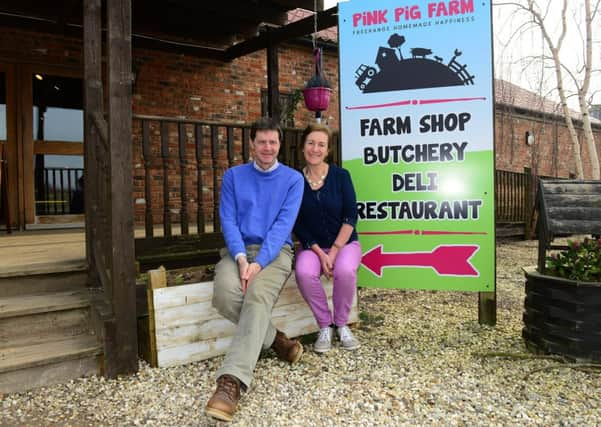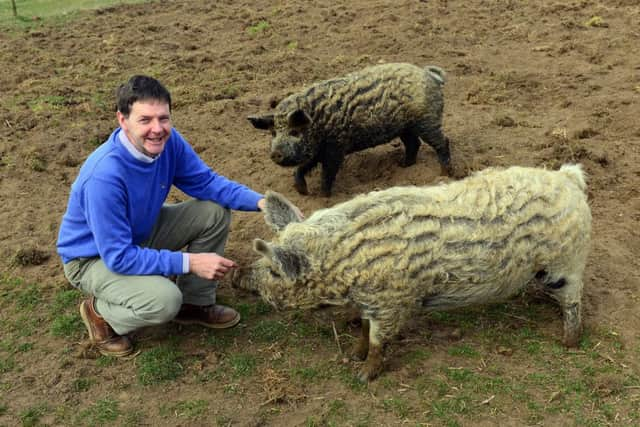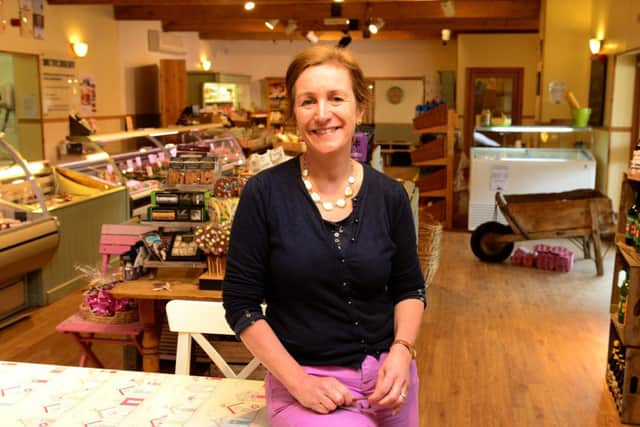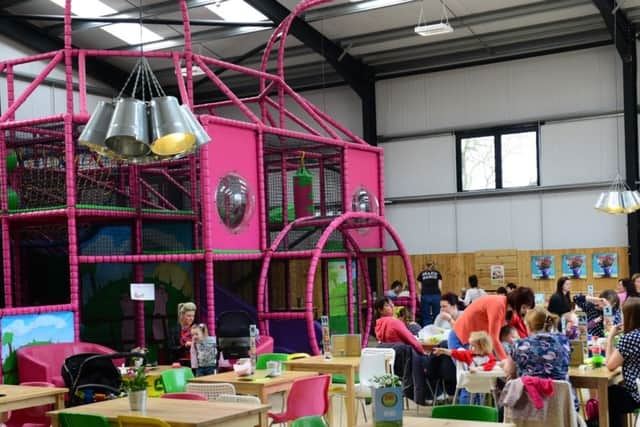The evolution of The Pink Pig


When we last visited Holme Hall in the village of Holme near Scunthorpe it was around the time when Andrew and Sally Jackson had officially launched their newly branded farm shop and restaurant.
The Pink Pig has since become one of the area’s most visited attractions and continues to expand, with a new indoor children’s area added last year and more to follow soon. Ten years ago, when Country Week was born, the Jacksons’ farming enterprise encompassed a largely arable concern across their 800 acres plus pigs, chickens and sales of food. It was growing organically - but in more ways than one, as this was at the time when organic food production, and the prices farms were receiving, was at a level that was encouraging others to grow.
Advertisement
Hide AdAdvertisement
Hide Ad“We’d had good years for cereal growing, on both yield and price, and the exchange rate was favourable,” said Andrew. “But from 1997 onwards the wheat price crumbled and we had what turned out to be ten lean years. One of the areas I thought might work for us was in growing organic vegetables for supermarkets. Organic food was fashionable, it seemed supermarkets couldn’t get enough and because of this the right prices were being paid.”


Parsnips and potatoes were to be Andrew’s choices and to provide organic manure he took on pigs and chickens. They landed a contract to supply Waitrose.
Sally started selling from a small farm shop in 2000 and the potential of what they had created was evident when Sally saw a turnover of £25,000 in her first year. Five years later we visited, by which time the farm shop and restaurant had increased in size massively. They had converted a redundant chicken shed and had grown their restaurant from 24 seats to 90.
So what has happened in the intervening decade? Gone is the word organic from their signage and gone are the organic vegetables. Instead the watchwords are free range, home produce and happiness.
Advertisement
Hide AdAdvertisement
Hide AdSally and Andrew’s move from organic to free range has been mirrored by others and for them has had a double positive effect. Their customers like free range as a concept and Andrew has freed up some of the time that had been taken up with regulations over growing organic food.


“We worked out that Andrew was devoting 20 full days a year to some form of farm inspection relating to organic crops, including inspections made by supermarkets, and as a result his normal non-organic farming side, which was our main stream of income, was suffering, and then the price of pig feed doubled overnight,” Sally said. “It was when we saw Jamie Oliver highlighting free range produce that we moved out of organic. We asked our customers what they thought of free range and the vast majority told us they were more concerned with wanting to know where their meat had come from and that it had been treated well and been reared properly than whether it was organic. So we dropped the organic side and we’ve never looked back.”
The change meant Andrew was able to devote himself more to the farm while Sally moved The Pink Pig’s operation further forward too.
Andrew now grows 250 acres of seed wheat; 100 acres of seed barley; 110 acres of peas for Bird’s Eye; 160 acres of oilseed rape; and 20 acres of carrots for the co-operative group Freshgro in Nottinghamshire.
Advertisement
Hide AdAdvertisement
Hide AdFree range pigs and chickens are still part of the farm operation with a herd of 15 sows and 600 chickens, along with a flock of 40 Lleyn X Texel ewes.


The Pink Pig is an impressive farm shop that sells a great deal of its own produce as well as that of other local farms; its restaurant was busy at 11am on a Tuesday; and the numbers of young families visiting the animals at Pink Piglet Farm Park and Play Barn show its popularity, but Sally is not one for resting on any laurels.
“In the back of our minds we have always been aware that if a company such as Tata Steel, that is such a big part of Scunthorpe, was to shut we would have to be buffered against it,” she said. “We want to attract from further afield, and with what we have done recently and what we have in store we are now bringing in customers from Doncaster, Hull, Grimsby and Lincoln.”
Sally Jackson is also the current chairperson of FARMA the organisation that represents small scale local producers, farm shops and farmers markets.
Advertisement
Hide AdAdvertisement
Hide AdLast Sunday she returned from a self-funded visit to South Africa with FARMA where she and other representatives took a look at their farm retailing. The Jacksons are also members of the Farm Attractions Association and were recently placed very highly in an RSPB competition following their work on environmental issues that has seen over 100 species of birds spotted on their land. They have three children Luke, 24, Anna, 22, and Carrie, 18.